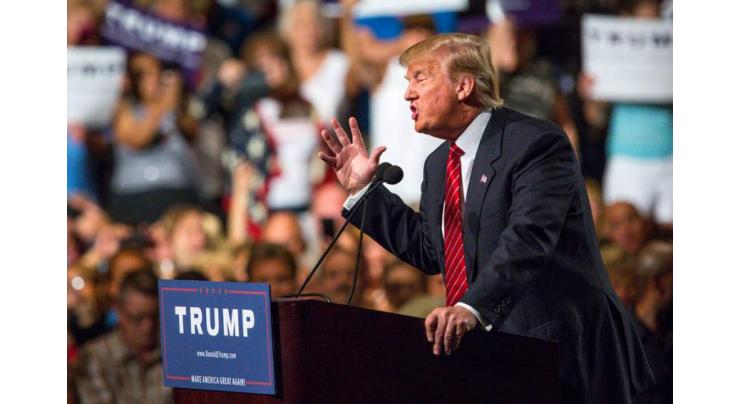
Bill Being Introduced To Tighten Rules For H-1B Visa To Secure 'American Jobs'
Mohammad Ali (@ChaudhryMAli88) Published January 06, 2017 | 09:40 PM

WASHINGTON, Jan. 6 (APP - UrduPoint / Pakistan Point News - 06th Jan, 2017 ) A well-known Republican congressman is introducing a bill in the US Congress, seeking tightening of rules for high-skilled worker visas, a move that will largely hurt workers from India.
Mr. Trump, who is getting ready to assume the presidency on January 20, has promised to bring jobs back to American he says have been lost due to outsourcing and influx of workers hired from abroad.
The proposed legislation by Rep. Darrell Issa seeks to make rules more stringent for getting H-1B visas. In a statement posted on his website, Congressman Issa said he was re-introducing the bill in a bid to 'stop the outsourcing of American jobs' and ensure laws are not 'abused to allow companies to outsource and hire cheap foreign labor from abroad.' The intended legislation proposes to increase required salaries for positions granted under the H-1B scheme that replace American workers from $60,000 to $100,000 per year, a media report said quoting the Congressman.
According to the lawmaker, raising the limit for required salaries would help remove the profit incentives, thereby encouraging companies to make local hiring. The bill was first introduced in July and is co-sponsored by Democratic Rep.
Scott Peters. Both lawmakers belong to the state of Calirfornia. If approved by the Congress, the bill would impact mostly Indian citizens who enter the United States in thousands every year on H-1B visas.
Analysts say the proposed bill will not just hurt Indian citizens but also India's outsourcing firms which hire millions and account for roughly 20 percent of the country's exports of goods and services.
Adverse legislation with respect to U.S. H-1B visas under Mr. Trump's administration is a key risk to the sector, Sagar Rastogi, an analyst at Indian brokerage Ambit Capital, said Thursday in a research note, as quoted by the Wall Street Journal. APP/zh
Related Topics
Recent Stories

PTI to stage nationwide protests against alleged electoral frauds

Senate continues discussion on Presidential address to Joint Sitting of Parliame ..

Masood Khan calls for Pak-US cooperation for regional peace

Interior Minister starts Margalla Trail Patrol for security

Currency Rate In Pakistan - Dollar, Euro, Pound, Riyal Rates On 26 April 2024

Today Gold Rate in Pakistan 26 April 2024

ICC Womens T20 World Cup Qualifier, Match 2: Ireland Women open with Comfortable ..

Robinson, bowlers help New Zealand go 2-1 up against Pakistan

Shahzeb Chachar to hold khuli kachehri on April 26

Heatwave amid Israel's aggression in Gaza brings new misery, disease risk

Tourism must change, mayor says as Venice launches entry fee

Court adjourns Judicial Complex attack case till May 17
More Stories From World
-
China high-tech capacity exposes overcapacity mantra in green energy
9 minutes ago -
Golf: PGA Zurich Classic of New Orleans scores
19 minutes ago -
Cybersecurity firm Darktrace accepts $5 bn takeover
40 minutes ago -
Clean energy drives massive BHP takeover bid
1 hour ago -
Copper price tops $10,000 for first time in two years
1 hour ago -
Ukraine agriculture minister held for alleged corruption
2 hours ago
-
China calls Germany spy claims 'pure fabrication'
2 hours ago -
Singapore expects 1-3 pct growth this year
2 hours ago -
Hong Kong's Hang Seng Tech Index rises over 5 pct
2 hours ago -
New Zealand business sector R&D expenditure hits 2.21 bln USD
2 hours ago -
3 dead after mini car falls into west Japan paddy field
2 hours ago -
Chinese shares higher at midday Friday
2 hours ago